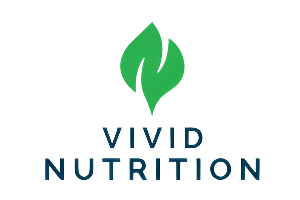
Can Cordyceps help treat cancer? Exploring the Potential Role of Cordyceps in Cancer Support: A Blend of Tradition and Research
Share
Can Cordyceps help treat cancer? Exploring the Potential Role of Cordyceps in Cancer Support: A Blend of Tradition and Research
Cordyceps, revered for centuries in traditional medicine, has sparked interest in its potential role in supporting cancer treatment. In this exploration, we delve into both traditional beliefs and scientific studies to understand the nuanced relationship between Cordyceps and cancer.
Traditional Reverence: Cordyceps in Ancient Healing
Cordyceps has a rich history in traditional Chinese medicine, where it has been valued for its adaptogenic properties and potential contributions to overall well-being. Traditional beliefs often associate Cordyceps with immune support, a factor relevant to cancer care.
Immunomodulation: A Key Aspect in Cancer Support
Cordyceps is recognized for its immunomodulatory effects, influencing the immune system's response. This attribute is particularly interesting in the context of cancer treatment, where a robust immune system plays a crucial role in surveillance and defense against cancer cells.
Antitumor Potential: Insights from Scientific Studies
While traditional beliefs provide a foundation, scientific research contributes a modern perspective. Some studies suggest that Cordyceps may exhibit antitumor effects, influencing cancer cell growth and proliferation.
Immune System Modulation: Enhancing Cancer Immunotherapy
Cordyceps' impact on immune system modulation extends to its potential synergy with cancer immunotherapy. By influencing immune responses, Cordyceps may contribute to the effectiveness of certain cancer treatments.
Adjuvant Therapy: Cordyceps alongside Conventional Treatments
Cordyceps is explored as a potential adjuvant therapy, complementing conventional cancer treatments. Some studies suggest that it may enhance the efficacy of standard therapies while mitigating side effects.
Antioxidant Properties: Countering Oxidative Stress
Cordyceps' antioxidant properties are of interest in cancer support, as oxidative stress is implicated in cancer development. By neutralizing free radicals, Cordyceps may play a role in reducing oxidative damage to cells.
Consultation with Healthcare Professionals: Individualized Approach
While research shows promise, it's crucial to approach Cordyceps as a complementary measure under the guidance of healthcare professionals. Individualized treatment plans, considering the type and stage of cancer, are essential.
Integrating Cordyceps Responsibly: Dosage and Quality Considerations
For those considering Cordyceps as part of cancer support, responsible integration is key. Adhering to recommended dosages and choosing high-quality products from reputable sources enhance safety and efficacy.
In conclusion, the potential role of Cordyceps in cancer support is a fascinating intersection of tradition and research. While studies show promise, ongoing research is needed, and individuals should approach Cordyceps as a complementary aspect within a comprehensive cancer care plan, guided by healthcare professionals.
